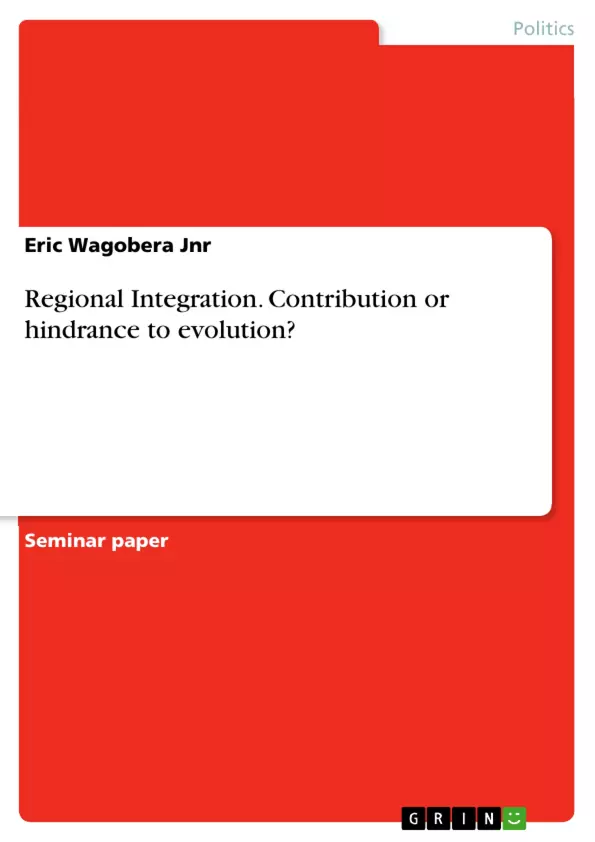International relations is a branch of political science that studies the relations between nations and their foreign policies. Like all scientific studies, international relations can be best understood by the aid of theories. The theorization of international relations emerged during the interwar period with liberalists calling for a collective security system to replace the balance of power policy which was being fronted by the realists. Since the turn of the 20th century when interstate relations intensified, it has always been hard to talk about international relations without making a reference to the three grand theories; realism, Marxism, and liberalism. This paper will therefore present and evaluate these three main theories.
These theories have extensively been used by different scholars to explain and predict interstate behaviours in the international system. International relations theories are also described as a set of ideas that explain the nature of the international system while predicting the outcomes from actions by major players in international relations. These theories reflect what transpires in international relations and this implies that their concepts reflect what happens on the ground. They have provided a conceptual basis upon which to analyse the complicated and intricate mechanisms of international relations. However, there have been constant clashes amongst the proponents of these theories with each group trying to prove how relevant it is over the other.
Frequently asked questions
What is the study about?
The study is a comprehensive language preview which includes the title, table of contents, objectives and key themes, chapter summaries, and key words of a work analyzing international relations theories.
What is covered in Chapter One: Background to the Study?
Chapter one introduces the four grand theories used in the study of international relations, provides a historical perspective on their evolution, and mentions the great thinkers behind these theories. It explains how theories are used as tools for analyzing international relations and discusses the evolution of international relations theories, specifically focusing on the evolution of idealism, realism, and Marxism.
What are the key points of Chapter Two: Evaluation of the Realist Theory?
Chapter two analyzes the assumptions and relevance of the realist theory, examining its radical viewpoint and its criticisms of other theories, especially liberalism. It delves into the core assumptions of the realist theory, such as power politics, national interests, international anarchy, and the balance of power. It explores the relevance of realism in international relations by discussing its realistic interpretation of global politics and its ability to offer precise predictions.
What does Chapter Three: Evaluation of the Liberal Theory focus on?
Chapter three discusses the basic tenets of liberal thinking in international relations and examines the theory's relevance to understanding the international relations system. It evaluates the core assumptions of the liberal theory, including the rejection of power politics, the emphasis on mutual benefits and international cooperation, the significance of non-state actors, the importance of diplomacy, and the concept of collective or universal interests replacing national interests. It also explores how liberalism enhances international relations by promoting regionalism, acknowledging the role of international organizations, and highlighting the effectiveness of diplomacy.
What does Chapter Four: Evaluation of the Marxist Theory discuss?
Chapter four challenges the principles of liberalism and realism by explaining international relations from an economic and class-based perspective. It examines the core assumptions of the Marxist theory, such as the economy as the major determinant of societal behavior, classism as a unit of analysis, and the importance of class interests. It delves into the relevance of Marxism in international relations by discussing its impact on labor movements, its critique of capitalism, and its contribution to the emergence of neo-Marxist theories like dependency theory and world-systems theory.
What is the focus of Chapter Five: Summary and Conclusion?
Chapter five provides a summary of the previous chapters and the evaluation of the ideologies represented by the grand theories. It summarizes the assessment of grand theories and concludes the analysis, highlighting the relevance and importance of these theories in the study of international relations.
What is the overall conclusion of the study?
The study concludes that the grand theories of international relations (realism, liberalism, and Marxism) are essential and remain relevant to the study of international relations due to their insightful interpretations of the complex nature of the international system. These theories are valuable for understanding global events and the decision-making processes of international actors.
- Citation du texte
- Eric Wagobera Jnr (Auteur), 2016, Regional Integration. Contribution or hindrance to evolution?, Munich, GRIN Verlag, https://www.grin.com/document/354253



